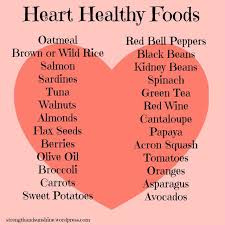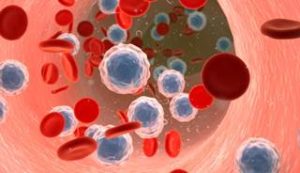
Diagnosed with Cancer? Your two greatest challenges are understanding cancer and understanding possible side effects from chemo and radiation. Knowledge is Power!
Learn about conventional, complementary, and integrative therapies.
Dealing with treatment side effects? Learn about evidence-based therapies to alleviate your symptoms.
Click the orange button to the right to learn more.
- You are here:
- Home »
- Blog »
- side effects ID and prevention »
- Heart Disease Second Leading Cause of Death for Cancer Patients
Heart Disease Second Leading Cause of Death for Cancer Patients

“Heart disease is a major cause of morbidity and mortality in cancer patients. Candidates for aggressive radical surgeries or chemotherapies should be carefully selected in this aging cancer population”
Heart disease is the leading cause of death for Americans. Cancer is a close second. Heart disease is the second leading cause of death for cancer survivors and the study below the best the studies linked below can come up with is “Continue to optimize the new evolving cardio-oncology service???” Boy is that an understatement.
And for the record cardiotoxic chemotherapy regimens causing short, long-term and late stage heart disease has been known about and documented for decades. I don’t think that conventional oncology understood the extent of the damage done to our hearts. I mean, the second leading cause of death to cancer patients is…heart disease?
My cancer, multiple myeloma (MM), is a rare blood cancer. Many of the annual MM deaths are from those health conditions caused by MM- pneumonia, kidney disease, bone damage…things like that.
Imagine my surprise then, when I was diagnosed with chemotherapy-induced cardiomyopathy a few months ago (1/19). I am on track to be one of the many cancer survivors who dies of his cancer treatment, not his cancer or problems caused by his cancer.
The real kick in the ass? Heart disease from chemotherapy can be prevented. Or at least managed. I have stabilized my own cardiomyopathy without any conventional medications.
If you are about to undergo oncologic therapies or if you have recently completed chemo and/or radiation, there is a good chance that heart failure is in your future.
Scroll down the page, post a question or a comment if you would like to learn more about heart health.
Thanks,
David Emerson
- Cancer Survivor
- Cancer Coach
- Director PeopleBeatingCancer
Recommended Reading:
- Cardiac Rehab for Cancer Patients
- Cancer Coaching- Antioxidants During Chemotherapy/Radiation?
- Hempseed and Heart Health
- Breast Cancer Survival and… Heart Disease???
Heart Disease as a Major Cause of Death in Cancer Patients: An Epidemiologic Analysis of 6 Million Cancer Patients From the U.S.
“Background-The recent development of numerous anti-cancer, immunotherapy, and androgen-deprivation drugs resulted in significant improvement in cancer survival. However, the cardiovascular toxicity of such drugs is not well known. Furthermore, radical resection surgeries can result in significant cardiac morbidity and mortality.
Our aim is to investigate the cardiac death (CD) in cancer patients in the U.S…
Results- A total of 6,154,298 patients were included in the analysis (1998-2014), 2,980,693 patients (48.4%) died.
Lung cancer was the leading cause of death, cardiac death (CD) was the second with (4.8%) mortality rate.
Cardiac Death group analysis showed-
- 59.5% were male,
- 40.5% female,
- 82.7% white,
- 11.6% African-American.
The incidence of CD was higher in patients ages >70 years. The most common site for primary cancer in the CD group was-
- prostate 22.1%,
- colon 15.3%,
- breast 12.2%,
- lung 9.6%, and
- urinary bladder 7.4%.
A total of the 71.7% of the Cardiac Death group had a localized/regional disease; surgery was performed in 53.4% of the CD group, including 24.7% radical surgery. Bladder cancer had the highest cardiac mortality (8.4%), while in prostate cancer, heart disease competes with prostate cancer as the leading cause of death (7.2% vs 7.3%, respectively). Predictors of the CD on a multivariate regression model include male sex, advanced age at diagnosis, surgery performed, and lung and breast as primary cancer sites. Advanced cancer stage was independent of the CD.
Conclusion-Heart disease is a major cause of morbidity and mortality in cancer patients. Candidates for aggressive radical surgeries or chemotherapies should be carefully selected in this aging cancer population. Our data suggest the need to continue to optimize the new evolving cardio-oncology service as a part of the multidisciplinary cancer care team. Further research is needed to identify high-risk groups…”
Ionising radiation and cardiovascular disease: systematic review and meta-analysis
“What is already known on this topic
-
Exposure to high dose ionising radiation during radiotherapy can damage the heart
-
Cardiovascular disease risk in the low dose range (<0.1 Gy), characteristic of doses that patients receive from medical diagnostic exposures or those radiation workers receive from occupational exposures is not well understood
-
Previous systematic reviews published over a decade ago looked at a much smaller number of studies, mostly with lower dose or lower dose rate exposures
What this study adds
-
A systematic review of 15 098 studies yielded 93 informative and largely non-overlapping studies and suggest modest but significantly increased excess lifetime risk of 2.3-3.9 deaths per 100 people exposed to one Gy of radiation
-
These findings have implications for patients who undergo radiation exposure as part of their medical care, as well as policy makers involved in managing radiation risks to radiation workers and the public
-
The potential increased risk of radiogenic cardiovascular disease should prompt vigilance to control other modifiable cardiovascular risk factors and extra consideration of cardiovascular disease following radiation exposure


